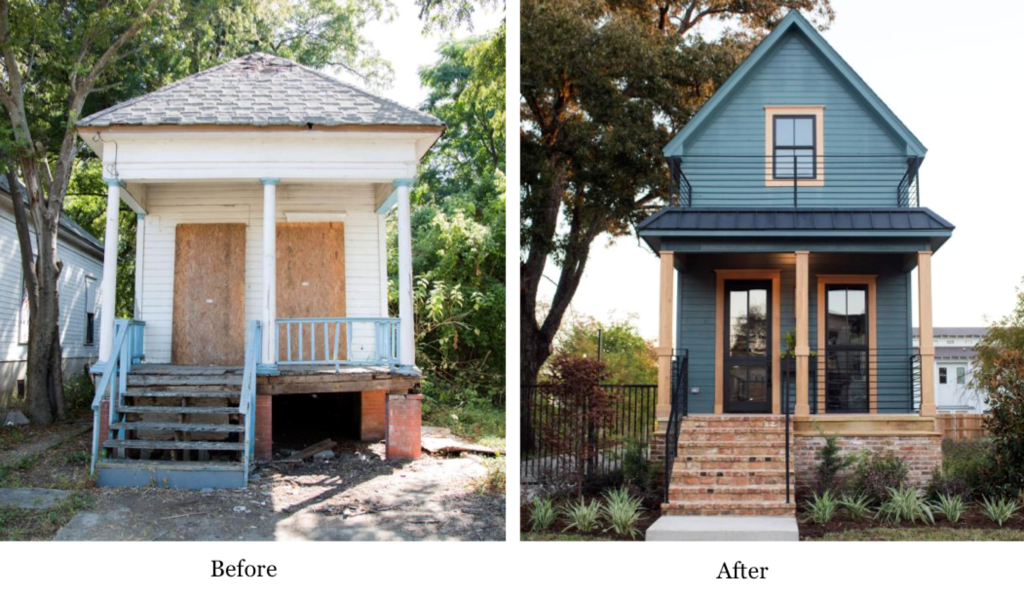I invest in fixer-upper houses from time to time, and someone suggested that I write about some of my experiences with these investments. While I don’t think that relaying fixer-upper war stories would make for interesting reading, I do think there are some general ideas that one should keep in mind when investing in and executing a fixer-upper that aren’t well portrayed in the various fixer-upper television shows.

Have an Edge
There are many stages to doing a fixer-upper:
– Buying the right property in the right neighborhood at the right price.
– Financing the property.
– Deciding how to fix it up and at what cost.
– Selling it.
There are other subsets of these stages. To be successful, you need to have an edge with at least one of these stages. This means you should be better than other people at this particular task. For instance, if you are handy, you might be able to complete some or all of the handiwork yourself at a low cost, and that would be your edge. Or, you might be a real estate agent and you can save money on commission payment at the exit, or you might have access to pocket listings to buy before they are released to the general public. Perhaps you can put your interior design skills and contacts to work to create a beautiful home. It is more difficult to make money if you pay retail for everything along the way, and so you should figure out what your edge is and exploit it.
Be Prepared To Make Decisions
During the fixer-upper process, you will need to be able to make good decisions quickly. I think this aspect is relatively well shown in the television shows. Time is money and so you need to make decisions about colors, styles, appliances, flooring, or whatever, in a rapid fashion. Because, if you hem and haw about your choices, you will hold up the project, and your contractors will get frustrated with you.
By The Book
While it might be tempting to bypass the appropriate approval processes, it is highly recommended that you not do so and instead do everything by the book. Make sure you obtain appropriate association, city, town or county approval to do any work you undertake. If you don’t, it might come back to bite you in a big way. Work that is completed without proper permits will be difficult to sell at the back end. Are you only doing interior work that doesn’t need prior approval? Great, but make sure you don’t need that permit or approval before you start your work.
Keep Your Eye On The Prize
Most importantly, make sure you know what you intend to sell your property for, and back into your ideas and your costs from that end number. If you want to do a master bathroom that will cost $20,000 but you won’t get $20,000 of marginal value from that improvement, then you need to scale back your costs. I believe the fixer-upper television shows don’t do a good job of this aspect of the business. On TV, the sales price always seems to bail out the added or unexpected costs that the investors encounter along the fixer-upper process. It doesn’t always have a happy ending.
IMO
If you keep these ideas in mind if and when you decide to jump on the fixer-upper bandwagon, you stand a better chance of making money. As with anything else, the more you do it, the better you get at it. Start with a smaller project and work up from there. Make contacts along the way that can help you gain your edge. As I have stated before, doing fixer-uppers can be a fun side gig or even a main gig if you find that you have some talent with it.
